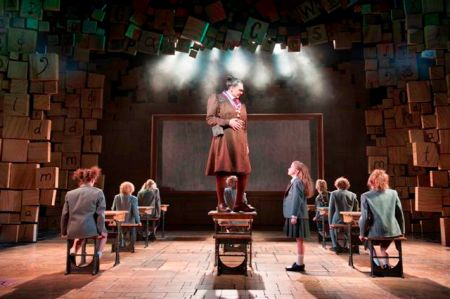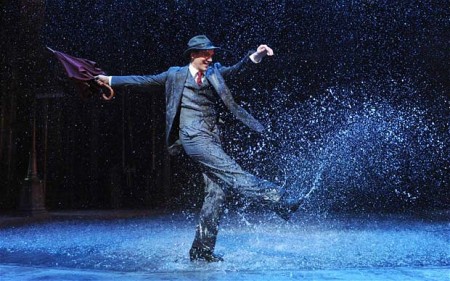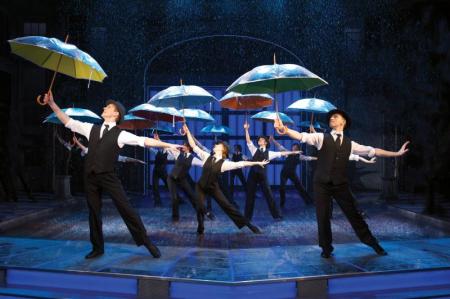Listening to the Miss Saigon gala performance on Radio 2, I was reminded of the genius of Boublil and Schönberg’s musical. It’s less than a month since I day queued on a (thankfully mild) December morning, getting seats in Row A of the Stalls, and the recording brought back great memories. But, perhaps because it’s sung-through, it also translated perfectly to radio in its own right, just as the iconic songs stand on their own merit.
Like Les Misérables, Miss Saigon is an epic musical set against the background of a turbulent period in history. And like Les Mis, Miss Saigon focuses not on the grand historical perspective but examines the impact of these events on the personal lives of people involved. While never overtly political, Miss Saigon has a lot to say about American culture as well as the tragedy of war. Coming hot on the heels of the war of resistance against the French, when Vietnam was part of Indochina, the Vietnamese suffered three decades of continuous war in their country. Miss Saigon captures the disruptive impact of a war on every citizen of the country where it is fought.
The cast boasts a wealth of talent. Understudy Niall Sheehy gave a good performance as Chris, but he was dwarfed by the vocal talents and charisma of Eva Noblezada as Kim who, along with Jon Jon Briones as the Engineer, was the standout star of the show. Poor, Vietnamese and a woman, Kim has arguably the least agency of any of the main characters. Along with the other bar girls she has very few options. Yet her (slightly naïve) faith in Chris and her determination to provide her son with a better life give her strength to fight against her situation and survive the war. Noblezada brings both a naivety and a steely determination to the role.
Though unlikely to become a poster boy for the ideal, the Engineer embodies the American Dream and his spirit of entrepreneurialism would surely have seen him prosper if he had found himself born in America. Briones, who played the role in the original West End cast, brings humanity to a man who has learned the only way to survive in turbulent times is to play the game. His morals are questionable but you find yourself feeling for this man who always finds the elusive American Dream just out of his reach. He both demonstrates the overwhelming power of the Dream in giving hope to the downtrodden and gives the lie to the idea of meaningful social mobility for the majority of the world’s population.
Nowadays Vietnam War has perhaps slipped from public consciousness, at least in the UK, with a younger generation who know very little about it. But you don’t have to have any knowledge of the history to appreciate the musical – as the adaptation of the plot from Madame Butterfly demonstrates, Miss Saigon deals with universal themes. The impact of war, cultural difference, personal courage and cowardice are all as relevant today as they have ever been.
When the helicopter comes to evacuate Saigon, both Americans and Vietnamese are swept up in events beyond their own control – it is purely an accident of birth that the Americans are being airlifted to safety while the Vietnamese are left to suffer.
Chris’s ignorance of Vietnamese customs and his and his wife’s inability to comprehend Kim’s desire for a new life for her son are symptomatic of the cultural gulf between the two worlds that have been thrown together. His broken promises, social strictures and his inability to understand Kim’s culture have disastrous consequences – echoing the unintended repercussions of many Western interventions.
Miss Saigon is not only a rousing musical filled with iconic songs but also a fascinating social commentary exploring universal themes.




